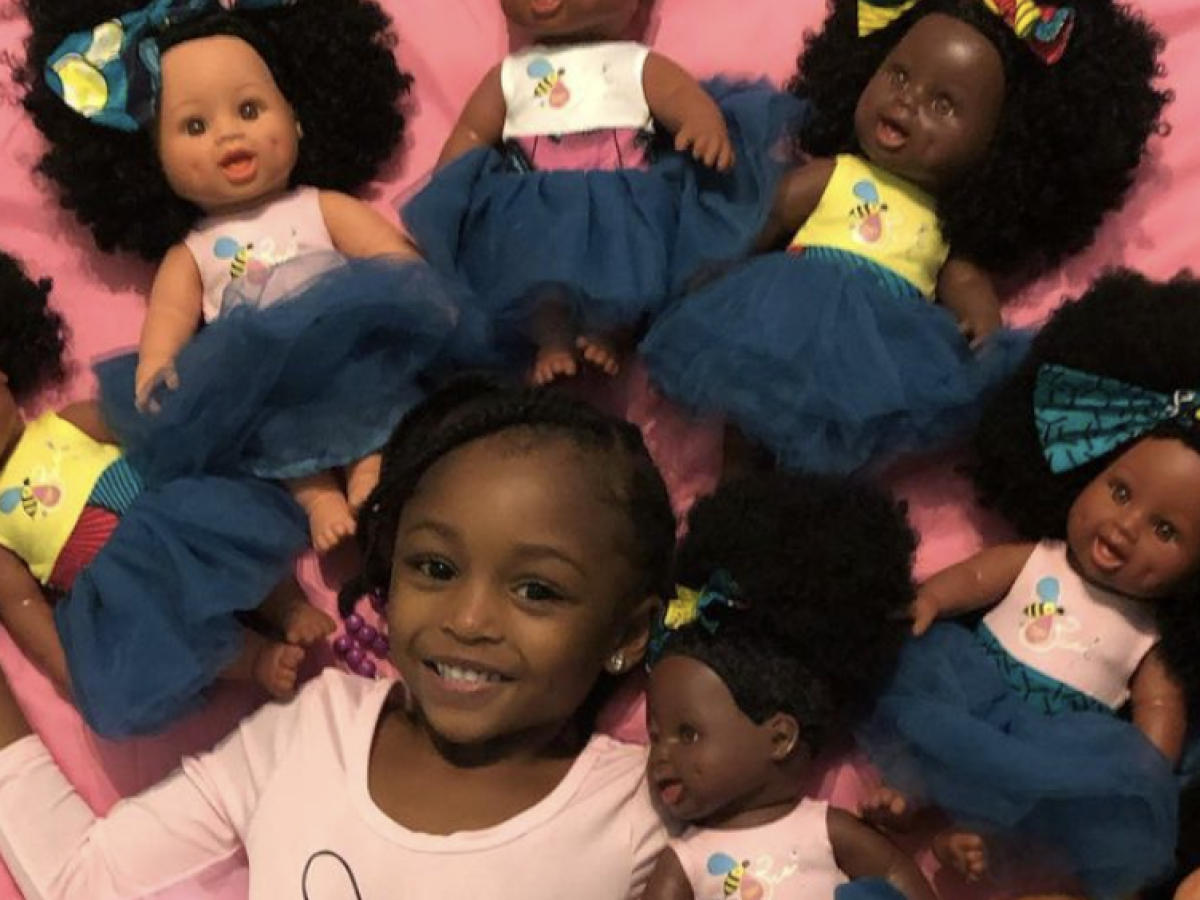
“Representation matters” is an oft-touted phrase, but one mother-daughter duo is making it a reality. Earlier this month, Orijin Bees, a multicultural toy company, “launched their Baby Bee Doll Collection on Target online…showcasing not only the variety of beautiful skin tones we have in our black and brown communities, but also the array of curly hair patterns.”
This line of dolls came to fruition after co-founder Esi—who is of Cabo Verdean and Ghanaian descent and was the only Black girl in her class—wrestled with confidence issues. Esi’s mother and co-founder Melissa Orijin hopes to help her daughter and other young Black girls “develop a strong sense of pride in their identity, culture and in their beautiful skin and hair…Orijin Bees, also written O.R.I.J.I.N.B.E.E.S, stands for Our Representation is Just Inclusion Normalized, Beautifully Empowering Every Soul.”
Melissa Orijin said that, “[a]s a purpose-driven brand, we are determined to help broaden the view of beauty to include Black and brown girls of every shade and hair texture…As a mother, I felt I had to do more for my kids, my family, my friends and also for the many kids out there who I’ve never met but who I know struggle the way Esi did, not seeing others like themselves in their classrooms or even among their toys at home.”
Researchers have weighed in on this issue since the 1940s, when “psychologist Kenneth B. Clark and his wife, Mamie, found that two-thirds of the 253 Black American children they studied preferred white dolls. The Clarks’ landmark report was deemed so important that it was used as evidence in the 1954 Supreme Court decision in Brown v. Board of Education as evidence of the detriment to Black children of continuing racial segregation in schools,” The New York Times reports.